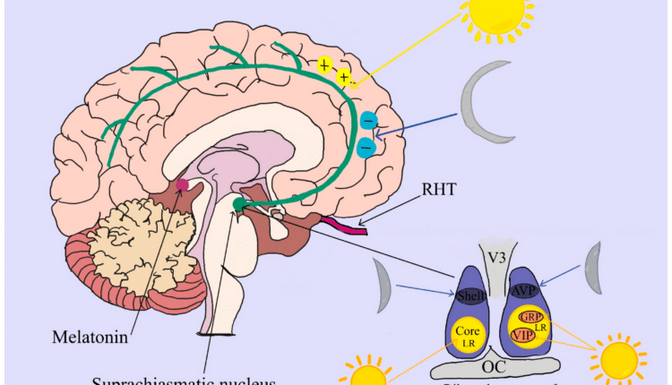The connection between irregular sleeping habits and breast cancer has become an area of significant research interest, especially as sleep disruptions are increasingly common in modern life due to shift work, late-night light exposure, and frequent disruptions to the sleep-wake cycle.
Here’s a deeper look into how inconsistent sleep patterns might influence breast cancer risk and overall health.
Circadian Rhythm and Cancer Risk
Circadian rhythm, the body’s natural internal clock, is crucial in regulating various biological functions such as hormone production, cell repair, and immune response. This rhythm is especially sensitive to light exposure and sleep patterns, which signal when it’s time for the body to rest, repair, and regenerate. When the circadian rhythm is disturbed—through activities like shift work or irregular sleeping hours—the body’s ability to maintain hormonal balance and repair DNA may be compromised. This disruption could increase the likelihood of cancerous developments, including breast cancer.
Melatonin, a hormone that regulates sleep and signals the body to wind down in the evening, is also believed to have anticancer properties. At night, melatonin levels naturally rise, but exposure to artificial light or irregular sleep schedules suppresses its production. This suppression is a concern for shift workers, who often face long periods of reduced melatonin. Reduced melatonin has been linked with increased estrogen production, which may play a role in breast cancer risk. Researchers hypothesize that, without sufficient melatonin, cells are left vulnerable to DNA damage, which can increase cancer risk over time.
Immune System and Inflammation
Irregular sleep patterns can weaken the immune system, which is essential in defending the body against abnormal cell growth. Quality sleep allows the immune system to target damaged cells and prevents inflammation, a process known to create a more favorable environment for cancer growth. Chronic inflammation due to circadian disruptions has been linked to various health issues, including an increased risk for breast and other types of cancer. During periods of deep sleep, the body performs cellular repairs and bolsters its defenses against potential threats; without these repair processes, the body may fail to correct cellular abnormalities, which can lead to cancer over time.
Shift Work and Long-Term Breast Cancer Risks
Shift work, particularly night shifts, has been identified in numerous studies as a factor in increased breast cancer risk. People who work irregular hours are more likely to experience hormone imbalances, disrupted sleep cycles, and chronic fatigue. Long-term exposure to such disrupted sleep patterns has been linked to various cancers, including breast cancer. The World Health Organization (WHO) has even classified shift work as a probable carcinogen, emphasizing the importance of understanding how these irregular schedules impact the body on a cellular level.
A large cohort study suggested that women who work night shifts for extended periods may have a slightly higher risk of developing breast cancer than those who don’t. Although more research is needed to establish a conclusive link, findings indicate that shift workers could benefit from cancer screenings and other preventive measures due to their higher exposure to cancer risk factors.
The Role of Lifestyle and Preventive Measures
Lifestyle modifications, such as establishing a regular sleep schedule, avoiding exposure to artificial light at night, and using sleep-friendly routines, can help align the body’s circadian rhythm, thus supporting immune health and reducing inflammation. Simple changes like limiting screen time before bed, investing in blackout curtains, and maintaining a consistent sleep routine—even for those who work night shifts—can have significant positive effects on overall health and may potentially lower cancer risk.
While the evidence linking sleep disturbances and breast cancer continues to grow, researchers emphasize the importance of further studies. Current recommendations from cancer organizations, such as the American Cancer Society, encourage individuals to prioritize regular sleep as part of a healthy lifestyle to support immune function and potentially reduce cancer risk.



